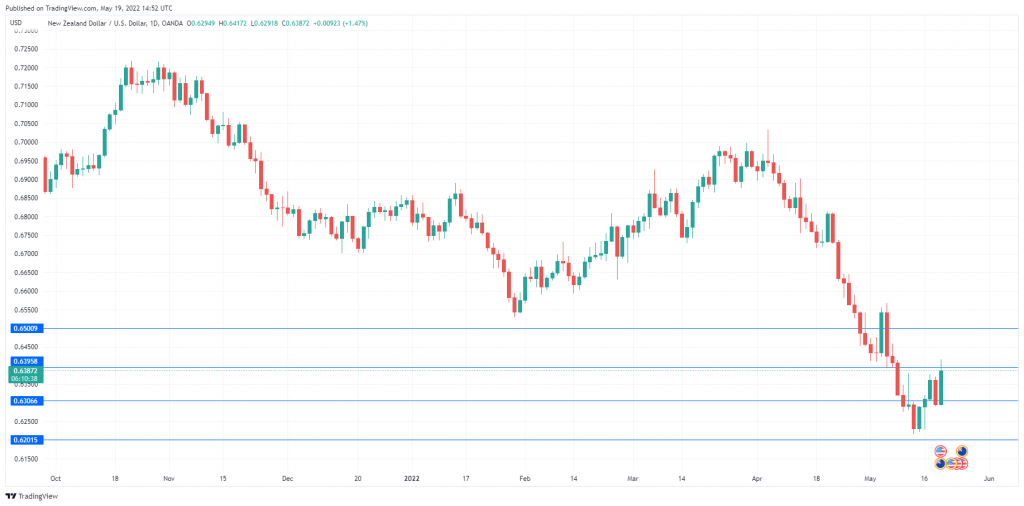The U.S. dollar is in retreat on Thursday, and the New Zealand dollar has taken full advantage. NZD/USD has surged 1.57% and is trading at 0.6390 in the North American session.
The New Zealand government released its annual budget today and announced measures aimed at tackling the cost of living crisis. These include weekly cash payments and lowering fuel taxes. Inflation climbed to 6.9% in Q1, up sharply from 5.9% in Q4 of 2020.
Inflation Remains Huge Headache For RBNZ
These moves may provide some relief for consumers, but they won’t bring down spiralling inflation. That daunting task is the responsibility of the Reserve Bank of New Zealand, which like other major central banks, finds itself playing catch-up with the inflation curve. The RBNZ has embarked on an aggressive tightening cycle, but it’s unclear when the higher rates will start to bring down inflation, which has hit 30-year highs.
Inflation is being driven by a host of factors – supply-chain disruptions and the Ukraine conflict have raised the price of imports, while at the same time there is strong domestic demand and a shortage of workers. The RBNZ faces a tricky and unenviable task in determining the appropriate pace of rate hikes. The central bank must raise rates to the extent that they curb inflation, without tipping the economy into recession.
The RBNZ is determined to keep inflation expectations in check, but that hasn’t happened so far. Last week, two-year expectations rose to 3.29%, a 31-year high. This is well above the RBNZ’s inflation target of 1-3%, and we’re likely to see the RBNZ remain aggressive and deliver a supersize 50-bps hike at next week’s policy meeting.
NZD/USD Technical
- NZD/USD has broken past resistance at 0.6306 and is testing resistance at 0.6396. Above, there is resistance at 0.6501
- There is support at 0.6201

This article is for general information purposes only. It is not investment advice or a solution to buy or sell securities. Opinions are the authors; not necessarily that of OANDA Corporation or any of its affiliates, subsidiaries, officers or directors. Leveraged trading is high risk and not suitable for all. You could lose all of your deposited funds.